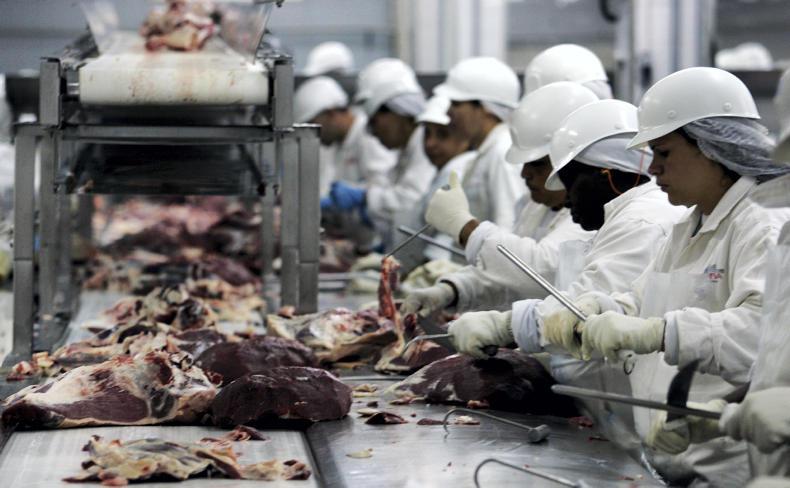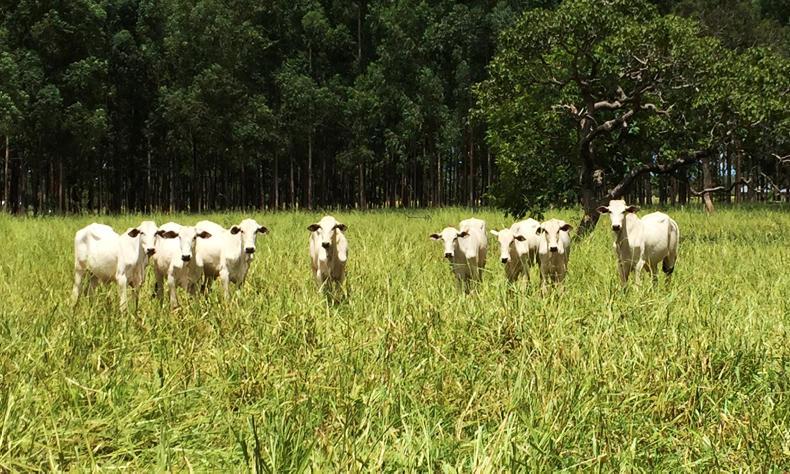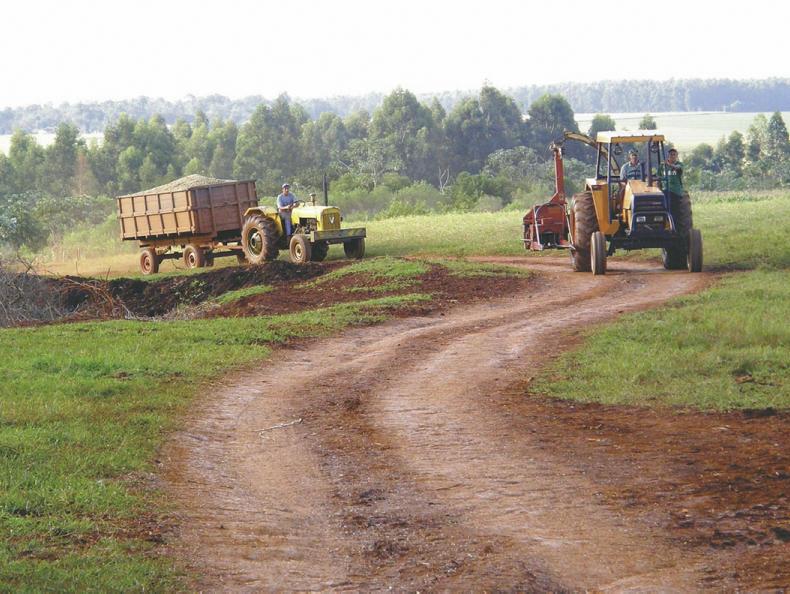“This is awful news for us. All these problems in Brazil make me sad about my country,” says Pablo Manfrim, a beef farmer from the Brazilian state of Sao Paolo, as we discuss the past four months that have rocked Brazil’s meat industry.
The latest blow to Brazil’s unravelling beef sector came on Thursday this week, when US secretary for agriculture Sonny Perdue announced the US Department of Agriculture (USDA) was suspending all imports of Brazilian fresh beef amid “recurring concerns” around food safety.
But for beef farmers like Pablo, the USDA’s ban on Brazilian fresh beef imports is minor when compared with the reputational damage the events of the last four months have done to ordinary hard-working farmers like him.
The scandal unfolds
Since March, when a year-long investigation by Brazilian authorities known as Operation Weak Flesh revealed rotten or tainted meat was being sold by factories after bribes were paid to customs officials, the Brazilian meat industry has been in turmoil.
The initial fallout from Operation Weak Flesh resulted in investigations into bribery and corruption at more than 50 meat plants across Brazil, with more than 20 public officials arrested.

As the events unfolded, the EU, US, China, Chile and Egypt all moved swiftly to suspend meat imports from Brazil amid the concerns around food safety.
As things settled down in April, these import suspensions were lifted in major markets for Brazilian beef, such as China and the US, and the South American country set about trying to repair the reputational damage caused by the meat scandal.
JBS
However, the country’s largest meat processor JBS continued to make headlines in the weeks that followed, as a number of its senior executives became embroiled in a separate corruption and bribery scandal that goes right to the very top of Brazilian politics.
It emerged that seven senior executives at JBS, including the two Batista brothers who control the company, had been co-operating with Brazilian prosecutors, having admitted paying €165m in bribes to public officials and politicians since 2010.
The saga erupted into a political firestorm in May when it emerged Joesley Batista, chair of JBS, had secretly recorded on tape a conversation between himself and Brazil’s current President Michel Temer, where the president was implicated endorsing a number of political bribes made by JBS.
Disaster
When taken as a whole, the events of the last four months in Brazil have been an unmitigated disaster for the country’s meat industry. Agriculture accounts for 20% of Brazil’s economy and almost half (43%) of total exports. Beef exports alone are close to $6bn every year, with 1.4m tonnes shipped in 2016.
But the real loser in all this is the Brazilian beef farmer, who despite producing cattle to improving welfare and quality standards, has been let down by the endemic corruption further up the chain.
The real loser in all this is the Brazilian beef farmer
The tainted or spoiled meat being sold to buyers that first started the meat scandal in Brazil is in no way related to the ordinary Brazilian beef farmer, the vast majority of whom have an ever-increasing understanding of the standards required for quality beef production.

Instead, utter greed at the processing level and corrupt customs officials unwilling to perform their role in the face of easy cash, has almost totally ruined Brazil’s reputation in terms of food safety.
“It is a shame for Brazil to have people doing things like this,” says Pablo. “These corrupt officials have damaged 50 years of hard work by Brazilian farmers in one single action.”
Full coverage: Brazilian Meat Scandal
US bans all imports of fresh Brazilian beef
Irish beef gets USDA seal of approval
“This is awful news for us. All these problems in Brazil make me sad about my country,” says Pablo Manfrim, a beef farmer from the Brazilian state of Sao Paolo, as we discuss the past four months that have rocked Brazil’s meat industry.
The latest blow to Brazil’s unravelling beef sector came on Thursday this week, when US secretary for agriculture Sonny Perdue announced the US Department of Agriculture (USDA) was suspending all imports of Brazilian fresh beef amid “recurring concerns” around food safety.
But for beef farmers like Pablo, the USDA’s ban on Brazilian fresh beef imports is minor when compared with the reputational damage the events of the last four months have done to ordinary hard-working farmers like him.
The scandal unfolds
Since March, when a year-long investigation by Brazilian authorities known as Operation Weak Flesh revealed rotten or tainted meat was being sold by factories after bribes were paid to customs officials, the Brazilian meat industry has been in turmoil.
The initial fallout from Operation Weak Flesh resulted in investigations into bribery and corruption at more than 50 meat plants across Brazil, with more than 20 public officials arrested.

As the events unfolded, the EU, US, China, Chile and Egypt all moved swiftly to suspend meat imports from Brazil amid the concerns around food safety.
As things settled down in April, these import suspensions were lifted in major markets for Brazilian beef, such as China and the US, and the South American country set about trying to repair the reputational damage caused by the meat scandal.
JBS
However, the country’s largest meat processor JBS continued to make headlines in the weeks that followed, as a number of its senior executives became embroiled in a separate corruption and bribery scandal that goes right to the very top of Brazilian politics.
It emerged that seven senior executives at JBS, including the two Batista brothers who control the company, had been co-operating with Brazilian prosecutors, having admitted paying €165m in bribes to public officials and politicians since 2010.
The saga erupted into a political firestorm in May when it emerged Joesley Batista, chair of JBS, had secretly recorded on tape a conversation between himself and Brazil’s current President Michel Temer, where the president was implicated endorsing a number of political bribes made by JBS.
Disaster
When taken as a whole, the events of the last four months in Brazil have been an unmitigated disaster for the country’s meat industry. Agriculture accounts for 20% of Brazil’s economy and almost half (43%) of total exports. Beef exports alone are close to $6bn every year, with 1.4m tonnes shipped in 2016.
But the real loser in all this is the Brazilian beef farmer, who despite producing cattle to improving welfare and quality standards, has been let down by the endemic corruption further up the chain.
The real loser in all this is the Brazilian beef farmer
The tainted or spoiled meat being sold to buyers that first started the meat scandal in Brazil is in no way related to the ordinary Brazilian beef farmer, the vast majority of whom have an ever-increasing understanding of the standards required for quality beef production.

Instead, utter greed at the processing level and corrupt customs officials unwilling to perform their role in the face of easy cash, has almost totally ruined Brazil’s reputation in terms of food safety.
“It is a shame for Brazil to have people doing things like this,” says Pablo. “These corrupt officials have damaged 50 years of hard work by Brazilian farmers in one single action.”
Full coverage: Brazilian Meat Scandal
US bans all imports of fresh Brazilian beef
Irish beef gets USDA seal of approval








 This is a subscriber-only article
This is a subscriber-only article












SHARING OPTIONS: